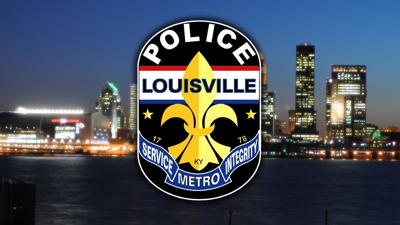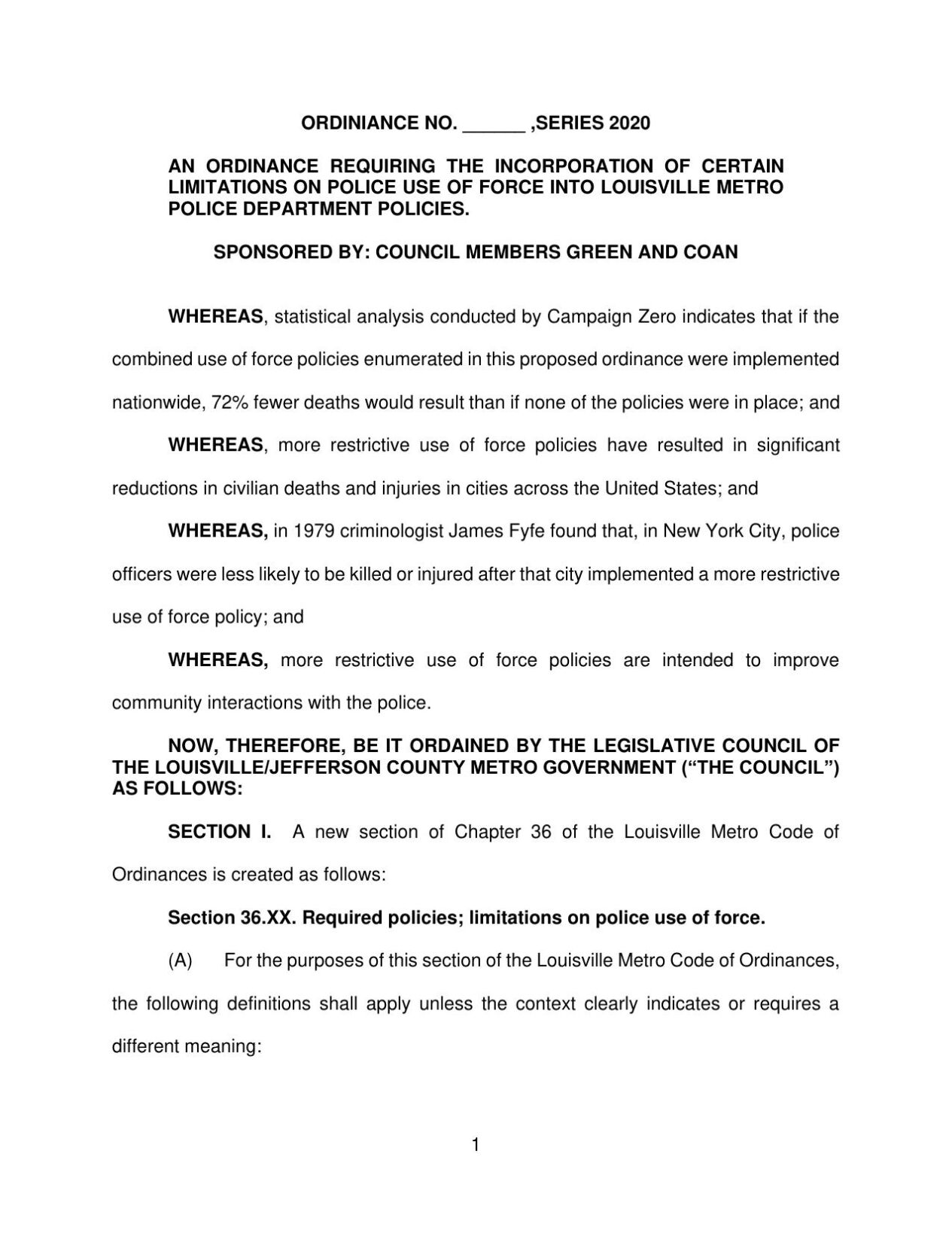LOUISVILLE, Ky. (WDRB) -- A Louisville Metro Council committee is considering an ordinance that would define when and how Louisville Metro Police officers can use force.
Among other measures, the legislation would limit when LMPD can use chemical agents like tear gas.
While the majority of the 91 straight days of protest in Louisville — sparked by the shooting of Breonna Taylor — haven't resulted in clashes between protesters and police, on some nights LMPD officers and partners have used chemical agents like tear gas and pepper balls to disperse crowds the department has deemed unlawful.
The proposed ordinance, sponsored by council members Brandon Coan, D-8, and Jessica Green, D-1, would only allow LMPD to use chemical agents when "it is reasonable to believe an individual or a group of individuals is acting with the intent of causing serious physical injury or death to another person or persons."
Coan and Green sought testimony from LMPD Maj. Paul Humphrey during a committee meeting on Wednesday. Humphrey said he disagrees with restricting the department’s use of chemical agents, which he said are less harmful than traditional police tools like guns and batons.
"The issues that we’ve had here recently — we’ve had over $2 million in reported property damage," Humphrey said. "Our ability to protect this city is directly related to our ability to use chemical agents on crowds that have become unlawful."
Inspired by the "8 Can't Wait" list compiled by Campaign Zero, a nonprofit seeking nationwide police reform, the council members' proposal would limit LMPD’s ability to use force in eight other ways, too:
(1) For purposes of restraint, department members shall not use chokeholds, strangleholds, vascular restraint, carotid restraint, chest compression, or any other tactic which applies pressure to the neck or throat that compromises or obstructs blood flow to the brain, or obstructs air flow and the ability to respire.
(2) Department members shall, when reasonable under the totality of the circumstances, resolve conflict or potential conflict through de-escalation techniques to decrease the likelihood that officers will resort to the use of force.
(3) Department members shall, when reasonable under the totality of the circumstances, give a clearly audible verbal warning before the use of deadly force.
(4) Department members shall, when reasonable under the totality of the circumstances, exhaust all alternative uses of force prior to using firearms.
(5) Department members shall act to prevent or stop any other officer, regardless of rank or assignment, from using unlawful, unnecessary, or excessive force.
(6) Department members shall not discharge their firearms either at, or from, a moving vehicle unless deadly force is being used against the officer or another person. The use of a vehicle by a civilian shall not be considered deadly force unless it is reasonable to believe the vehicle is intentionally being used to strike a person, a crowd, another vehicle or a building or structure with the intent of causing mass injuries or the death of another person.
(7) Department members shall, based on facts known or facts reasonably knowable to the officer, utilize the lowest level of force necessary to gain control of the subject.
(8) Department members shall report, through the chain of command, each use of physical force or threatened use of physical force other than a control hold. Pointing a firearm shall be considered a reportable threatened use of physical force.
"All eight of these policies are about minimizing police use of force, in order to protect both citizens and the police," Coan said.
Read the ordinance here:
LMPD interim Chief Robert Schroeder offered some tweaks to the legislation but didn't have any problems with some of the proposed changes, Coan said. Humphrey also didn’t have serious issues with many of the policies, because he said LMPD already uses them.
"We’re on the leading edge of a lot of this stuff, because we want to do things the right way," he said. "We’re constantly researching policy changes. We’re constantly researching best practices."
Coan didn’t disagree.
"This is something where LMPD and the City of Louisville should be proud of the policies we have in place," he said. "We obviously need to make sure that they’re followed."
Coan said passing the ordinance — and making the policies law — will ensure they are always followed going forward.
The proposal didn't get a vote Wednesday. According to Coan, council members will likely need more time to debate it and consider the changes LMPD would like to see.
Copyright 2020 WDRB Media. All Rights Reserved.



